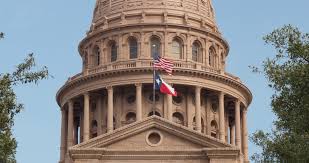
Breaking News
 "The Vatican, Schwab, Nazi's and The EU - It's All Connected" | Mel K
"The Vatican, Schwab, Nazi's and The EU - It's All Connected" | Mel K
 Sources Confirm To Alex Jones What Infowars Reported A Month Ago:
Sources Confirm To Alex Jones What Infowars Reported A Month Ago:
 The 3 Essential Animals Every Homestead Needs to Be Resilient!!
The 3 Essential Animals Every Homestead Needs to Be Resilient!!
 MAGA and the Fight for America | Stephen K. Bannon
MAGA and the Fight for America | Stephen K. Bannon
Top Tech News
 Cab-less truck glider leaps autonomously between road and rail
Cab-less truck glider leaps autonomously between road and rail
 Can Tesla DOJO Chips Pass Nvidia GPUs?
Can Tesla DOJO Chips Pass Nvidia GPUs?
 Iron-fortified lumber could be a greener alternative to steel beams
Iron-fortified lumber could be a greener alternative to steel beams
 One man, 856 venom hits, and the path to a universal snakebite cure
One man, 856 venom hits, and the path to a universal snakebite cure
 Dr. McCullough reveals cancer-fighting drug Big Pharma hopes you never hear about…
Dr. McCullough reveals cancer-fighting drug Big Pharma hopes you never hear about…
 EXCLUSIVE: Raytheon Whistleblower Who Exposed The Neutrino Earthquake Weapon In Antarctica...
EXCLUSIVE: Raytheon Whistleblower Who Exposed The Neutrino Earthquake Weapon In Antarctica...
 Doctors Say Injecting Gold Into Eyeballs Could Restore Lost Vision
Doctors Say Injecting Gold Into Eyeballs Could Restore Lost Vision
 Dark Matter: An 86-lb, 800-hp EV motor by Koenigsegg
Dark Matter: An 86-lb, 800-hp EV motor by Koenigsegg
 Spacetop puts a massive multi-window workspace in front of your eyes
Spacetop puts a massive multi-window workspace in front of your eyes
Assault On Dissent: Texas Bill Declares War On Memes

(Reclaim The Net) A new piece of legislation passed by the Texas House of Representatives has drawn fierce backlash for what many see as a direct assault on political speech and internet freedom. House Bill 366, deceptively framed as a measure to combat AI "misinformation", would in reality make it a criminal offense to share altered political content; such as memes or edited videos, unless it carries a government-mandated disclaimer.
Championed by former House Speaker Dade Phelan, whose political career has been marred by controversy, the bill passed with bipartisan support.
If enacted, it would treat the unapproved sharing of such content by campaigns or candidates as a Class A misdemeanor, punishable by up to a year behind bars.
Simply spending more than $100 to promote an altered image, video, or audio clip without the required government-approved language would be enough to trigger prosecution.
What's being dressed up as election integrity is, at its core, a disturbing attempt to police satire, commentary, and political expression.
The text of the bill prohibits publishing or distributing political advertising that includes any media "that did not occur in reality," including content altered with generative AI, without a prominently displayed disclaimer.
The Texas Ethics Commission would be tasked with deciding exactly what this mandated language should look like, right down to its size and color.
Platforms that host or display the content, like internet service providers, broadcasters, and billboard companies, are exempt from the law's penalties. But the individuals or campaigns responsible for the content are not, creating a chilling effect on anyone daring to use satire, parody, or digital commentary to criticize politicians.
Opposition has exploded on social media. State Rep. Shelley Luther, a Republican, said bluntly: "We're banning political memes and giving people up to a year in jail for failing to attach a disclosure to a cartoon." Her remarks reflect growing anger over the government's attempt to decide what political expression is permissible, and what will be punished.
Even among Republicans, discomfort with the bill is evident. State Rep. Andy Hopper stated plainly: "It is not the role of government to sit there and be a nanny state police force to decide."
Nevertheless, Phelan brushed off the concerns, saying, "All this does is tell you to add a disclosure that you are using altered media."

 Node without Consent
Node without Consent

